7 Jan 2016 | Campaigns, Europe and Central Asia, France, mobile, Statements
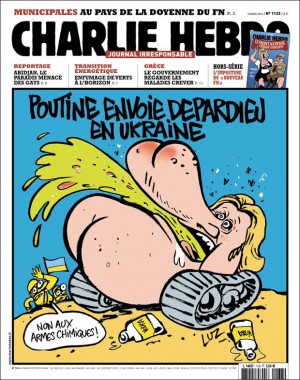
On the anniversary of the brutal attack on the offices of Charlie Hebdo we, the undersigned, reaffirm our commitment to the defence of the right to freedom of expression, even when that right is being used to express views that some may consider offensive.
The Charlie Hebdo attack, which left 11 dead and 12 wounded, was a horrific reminder of the violence to which journalists, artists and other critical voices are subjected in a global atmosphere marked by increasing intolerance of dissent. The killings inaugurated a year that has proved especially challenging for proponents of freedom of opinion.
Non-state actors perpetrated violence against their critics largely with impunity, including the brutal murders of four secular bloggers in Bangladesh by Islamist extremists, and the killing of an academic, M M Kalburgi, who wrote critically against Hindu fundamentalism in India.
Despite the turnout of world leaders on the streets of Paris in an unprecedented display of solidarity with free expression following the Charlie Hebdo murders, artists and writers faced intense repression from governments throughout the year. In Malaysia, cartoonist Zunar is facing a possible 43-year prison sentence for alleged ‘sedition’; in Iran, cartoonist Atena Fardaghani is serving a 12-year sentence for a political cartoon; and in Saudi Arabia, Palestinian poet Ashraf Fayadh was sentenced to death for the views he expressed in his poetry.
Perhaps the most far-reaching threats to freedom of expression in 2015 came from governments ostensibly motivated by security concerns. Following the attack on Charlie Hebdo, 11 interior ministers from European Union countries including France, Britain and Germany issued a statement in which they called on Internet service providers to identify and remove online content ‘that aims to incite hatred and terror.’ In July, the French Senate passed a controversial law giving sweeping new powers to the intelligence agencies to spy on citizens, which the UN Human Rights Committee categorised as “excessively broad”.
This kind of governmental response is chilling because a particularly insidious threat to our right to free expression is self-censorship. In order to fully exercise the right to freedom of expression, individuals must be able to communicate without fear of intrusion by the State. Under international law, the right to freedom of expression also protects speech that some may find shocking, offensive or disturbing. Importantly, the right to freedom of expression means that those who feel offended also have the right to challenge others through free debate and open discussion, or through peaceful protest.
On the anniversary of the Charlie Hebdo attacks, we, the undersigned, call on all Governments to:
- Uphold their international obligations to protect the rights of freedom of expression and information for all, and especially for journalists, writers, artists and human rights defenders to publish, write and speak freely;
- Promote a safe and enabling environment for those who exercise their right to freedom of expression, and ensure that journalists, artists and human rights defenders may perform their work without interference;
- Combat impunity for threats and violations aimed at journalists and others exercising their right to freedom of expression, and ensure impartial, timely and thorough investigations that bring the executors and masterminds behind such crimes to justice. Also ensure victims and their families have expedient access to appropriate remedies;
- Repeal legislation which restricts the right to legitimate freedom of expression, especially vague and overbroad national security, sedition, obscenity, blasphemy and criminal defamation laws, and other legislation used to imprison, harass and silence critical voices, including on social media and online;
- Ensure that respect for human rights is at the heart of communication surveillance policy. Laws and legal standards governing communication surveillance must therefore be updated, strengthened and brought under legislative and judicial control. Any interference can only be justified if it is clearly defined by law, pursues a legitimate aim and is strictly necessary to the aim pursued.
PEN International
ActiveWatch – Media Monitoring Agency
Adil Soz – International Foundation for Protection of Freedom of Speech
Africa Freedom of Information Centre
ARTICLE 19
Bahrain Center for Human Rights
Belarusian Association of Journalists
Brazilian Association for Investigative Journalism
Bytes for All
Cambodian Center for Human Rights
Canadian Journalists for Free Expression
Center for Independent Journalism – Romania
Center for Media Freedom and Responsibility
Comité por la Libre Expresión – C-Libre
Committee to Protect Journalists
Electronic Frontier Foundation
Foundation for Press Freedom – FLIP
Freedom Forum
Fundamedios – Andean Foundation for Media Observation and Study
Globe International Center
Independent Journalism Center – Moldova
Index on Censorship
Initiative for Freedom of Expression – Turkey
Institute for the Studies on Free Flow of Information
Instituto de Prensa y Libertad de Expresión – IPLEX
Instituto Prensa y Sociedad de Venezuela
International Federation of Journalists
International Federation of Library Associations and Institutions
International Press Institute
International Publishers Association
Journaliste en danger
Maharat Foundation
MARCH
Media, Entertainment and Arts Alliance
Media Foundation for West Africa
National Union of Somali Journalists
Observatorio Latinoamericano para la Libertad de Expresión – OLA
Pacific Islands News Association
Palestinian Center for Development and Media Freedoms – MADA
PEN American Center
PEN Canada
Reporters Without Borders
South East European Network for Professionalization of Media
Vigilance pour la Démocratie et l’État Civique
World Association of Community Radio Broadcasters – AMARC
PEN Mali
PEN Kenya
PEN Nigeria
PEN South Africa
PEN Eritrea in Exile
PEN Zambia
PEN Afrikaans
PEN Ethiopia
PEN Lebanon
Palestinian PEN
Turkish PEN
PEN Quebec
PEN Colombia
PEN Peru
PEN Bolivia
PEN San Miguel
PEN USA
English PEN
Icelandic PEN
PEN Norway
Portuguese PEN
PEN Bosnia
PEN Croatia
Danish PEN
PEN Netherlands
German PEN
Finnish PEN
Wales PEN Cymru
Slovenian PEN
PEN Suisse Romand
Flanders PEN
PEN Trieste
Russian PEN
PEN Japan
23 Jul 2015 | Magazine, mobile
Garzon is dressed as the kitchen maid of Government Palace. There is a party attended by ‘Tirifijo'[FARC commander], who is playing cards. President Andres Pastrana is talking to US ambassador Myles Frechette. He taunts Frechette with a riddle:
It is white, Colombia makes it and gringos eat it.”
Frechette answers: “It must be salt.”
Pastrana: “No, it is not salt.”
Frechette: “Ifit is not salt, then it must be the coco [nut].”
The maid says: “Yes, yes, it’s the coco, that little magic powder we
are always talking about.”
An advert for ELN guerrillas directed at the small investor. Voiceover:
Worried about your money? Relax, you no longer have to worry about money. Invest your savings in official certificates. ELNs are the only market instruments that can convert a heap of oil into a mountain of money. Remember that nefarious liquid emissions are not taxable or subject to deductions at source. There’s no time to waste, invest now in nefarious liquid emissions. Your future will be like oil: black.
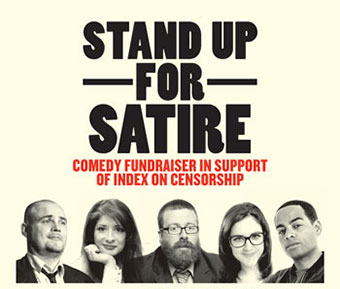 Index on Censorship has been publishing articles on satire by writers across the globe throughout its 43-year history. Ahead of our event, Stand Up for Satire, we published a series of archival posts from the magazine on satire and its connection with freedom of expression.
Index on Censorship has been publishing articles on satire by writers across the globe throughout its 43-year history. Ahead of our event, Stand Up for Satire, we published a series of archival posts from the magazine on satire and its connection with freedom of expression.
14 July: The power of satirical comedy in Zimbabwe by Samm Farai Monro | 17 July: How to Win Friends and Influence an Election by Rowan Atkinson | 21 July: Comfort Zones by Scott Capurro | 24 July: They shoot comedians by Jamie Garzon | 28 July: Comedy is everywhere by Milan Kundera | Student reading lists: Comedy and censorship

A woman looking out her window sees the Rodriguez family [drug cartel] leaving their apartment block. The family is wanted by the police. She calls the police. The captain regretfully informs her that the Rodriguez family does not exist, he has checked the phonebook and there is no Rodriguez family listed. The woman perseveres:
I’ve spent the last 25 minutes trying to hand you these bad men. Now they are leaving. They’re getting into a car with some politicians. God! These politicians are like Pontius Pilate, some denied him and others wash their hands of him. But captain, if you come quickly you’ll understand what is happening in this country. Too late, they’re gone. I’ll call you again next week.
Edited transripts of television satires by journalist and humourist Jaime Garzon (1995). At Gam on 13 August 1999, Garzon was executed on his way to the Radionet studio by two men riding on a motorcycle. Garzon, known for his intervention in the stalled peace process, had reportedly been threatened by Carlos Castano, head of the paramilitary United Self-Defence Force of Colombia (AUC), in the preceding days. According to colleagues, Garzon planned to meet Castano on 14 August 1999. The AUC denied any responsibility in the assassination. Translated by Paulo Drinot.
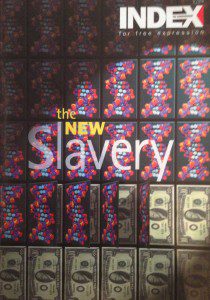 This article is from the January/February 2000 issue of Index on Censorship magazine and is part of a series of articles on satire from the Index on Censorship archives. Subscribe here, or buy a single issue. Every purchase helps fund Index on Censorship’s work around the world. For reproduction rights, please contact Index on Censorship directly, via [email protected]
This article is from the January/February 2000 issue of Index on Censorship magazine and is part of a series of articles on satire from the Index on Censorship archives. Subscribe here, or buy a single issue. Every purchase helps fund Index on Censorship’s work around the world. For reproduction rights, please contact Index on Censorship directly, via [email protected]
22 Apr 2014 | Magazine, Politics and Society
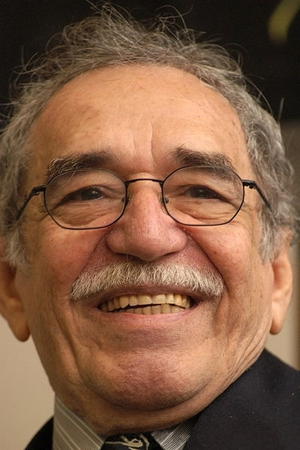 Colombian writer Gabriel García Márquez, who died on 17 April, wrote this piece on the evolution of journalism for Index on Censorship magazine in 1997. Before gaining worldwide acclaim for novels including One Hundred Years of Solitude and Love in the Time of Cholera, Márquez was a journalist for newspapers in Colombia and Venezuela. This piece shares his love of the profession and his concern that reporters have become “lost in labyrinth of technology madly rushing the profession into the future without any control”
Colombian writer Gabriel García Márquez, who died on 17 April, wrote this piece on the evolution of journalism for Index on Censorship magazine in 1997. Before gaining worldwide acclaim for novels including One Hundred Years of Solitude and Love in the Time of Cholera, Márquez was a journalist for newspapers in Colombia and Venezuela. This piece shares his love of the profession and his concern that reporters have become “lost in labyrinth of technology madly rushing the profession into the future without any control”
Some 50 years ago, there were no schools of journalism. One learned the trade in the newsroom, in the print shops, in the local cafe and in Friday-night hangouts. The entire newspaper was a factory where journalists were made and the news was printed without quibbles. We journalists always hung together, we had a life in common and were so passionate about our work that we didn’t talk about anything else. The work promoted strong friendships among the group, which left little room for a personal life.There were no scheduled editorial meetings, but every afternoon at 5pm, the entire newspaper met for an unofficial coffee break somewhere in the newsroom, and took a breather from the daily tensions. It was an open discussion where we reviewed the hot themes of the day in each section of the newspaper and gave the final touches to the next day’s edition.
The newspaper was then divided into three large departments: news, features and editorial. The most prestigious and sensitive was the editorial department; a reporter was at the bottom of the heap, somewhere between an intern and a gopher. Time and the profession itself has proved that the nerve centre of journalism functions the other way. At the age of 19 I began a career as an editorial writer and slowly climbed the career ladder through hard work to the top position of cub reporter.
Then came schools of journalism and the arrival of technology. The graduates from the former arrived with little knowledge of grammar and syntax, difficulty in understanding concepts of any complexity and a dangerous misunderstanding of the profession in which the importance of a “scoop” at any price overrode all ethical considerations.
The profession, it seems, did not evolve as quickly as its instruments of work. Journalists were lost in a labyrinth of technology madly rushing the profession into the future without any control. In other words: the newspaper business has involved itself in furious competition for material modernisation, leaving behind the training of its foot soldiers, the reporters, and abandoning the old mechanisms of participation that strengthened the professional spirit. Newsrooms have become a sceptic laboratories for solitary travellers, where it seems easier to communicate with extraterrestrial phenomena than with readers’ hearts. The dehumanisation is galloping.
Before the teletype and the telex were invented, a man with a vocation for martyrdom would monitor the radio, capturing from the air the news of the world from what seemed little more than extraterrestrial whistles. A well-informed writer would piece the fragments together, adding background and other relevant details as if reconstructing the skeleton of a dinosaur from a single vertebra. Only editorialising was forbidden, because that was the sacred right of the newspaper’s publisher, whose editorials, everyone assumed, were written by him, even if they weren’t, and were always written in impenetrable and labyrinthine prose, which, so history relates, were then unravelled by the publisher’s personal typesetter often hired for that express purpose.
Today fact and opinion have become entangled: there is comment in news reporting; the editorial is enriched with facts. The end product is none the better for it and never before has the profession been more dangerous. Unwitting or deliberate mistakes, malign manipulations and poisonous distortions can turn a news item into a dangerous weapon.
Quotes from “informed sources” or “government officials” who ask to remain anonymous, or by observers who know everything and whom nobody knows, cover up all manner of violations that go unpunished.But the guilty party holds on to his right not to reveal his source, without asking himself whether he is a gullible tool of the source,manipulated into passing on the information in the form chosen by his source. I believe bad journalists cherish their source as their own life – especially if it is an official source – endow it with a mythical quality, protect it, nurture it and ultimately develop a dangerous complicity with it that leads them to reject the need for a second source.
At the risk of becoming anecdotal, I believe that another guilty party in this drama is the tape recorder. Before it was invented, the job was done well with only three elements ofwork: the notebook,foolproof ethics and a pair of ears with which we reporters listened to what the sources were telling us. The professional and ethical manual for the tape recorder has not been invented yet. Somebody needs to teach young reporters that the recorder is not a substitute for the memory, but a simple evolved version of the serviceable, old-fashioned notebook.
The tape recorder listens, repeats – like a digital parrot – but it does not think; it is loyal, but it does not have a heart; and, in the end, the literal version it will have captured will never be as trustworthy as that kept by the journalist who pays attention to the real words of the interlocutor and, at the same time, evaluates and qualifies them from his knowledge and experience.
The tape recorder is entirely to blame for the undue importance now attached to the interview. Given the nature of radio and television, it is only to be expected that it became their mainstay. Now even the print media seems to share the erroneous idea that the voice of truth is not that of the journalist but of the interviewee. Maybe the solution is to return to the lowly little notebook so the journalist can edit intelligently as he listens, and relegate the tape recorder to its real role as invaluable witness.
It is some comfort to believe that ethical transgressions and other problems that degrade and embarrass today’s journalism are not always the result of immorality, but also stem from the lack of professional skill. Perhaps the misfortune of schools of journalism is that while they do teach some useful tricks of the trade, they teach little about the profession itself. Any training in schools of journalism must be based on three fundamental principles: first and foremost, there must be aptitude and talent; then the knowledge that “investigative” journalism is not something special, but that all journalism must, by definition, be investigative; and, third, the awareness that ethics are not merely an occasional condition of the trade, but an integral part, as essentially a part of each other as the buzz and the horsefly.
The final objective of any journalism school should, nevertheless, be to return to basic training on the job and to restore journalism to its original public service function; to reinvent those passionate daily 5pm informal coffee-break seminars of the old newspaper office.
Index on Censorship magazine is proud to have had Gabriel García Marquez among its contributors – a long list which has also included Samuel Beckett, Chinua Achebe, Salman Rushdie and many other literary greats. Printed quarterly, the magazine mixes long-form journalism with short stories and extracts from plays – some of which have been banned or censored around the world. Subscribe here




 This article is from the January/February 2000 issue of Index on Censorship magazine and is part of a series of articles on satire from the Index on Censorship archives.
This article is from the January/February 2000 issue of Index on Censorship magazine and is part of a series of articles on satire from the Index on Censorship archives. 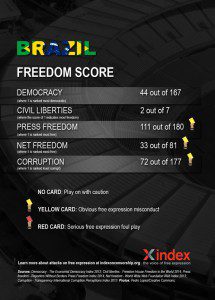
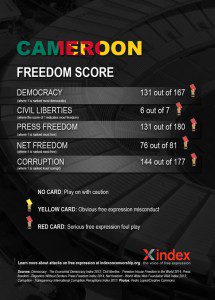
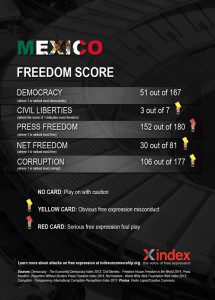
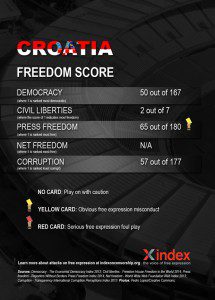
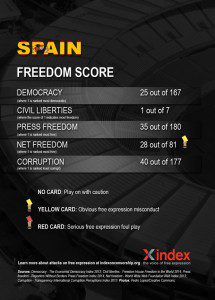
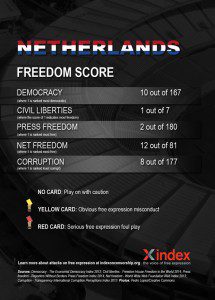
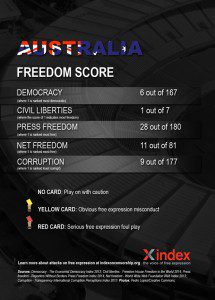
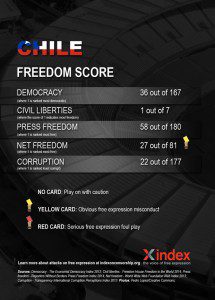
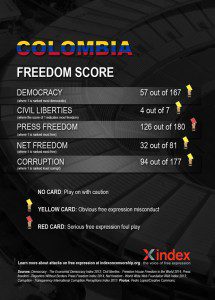
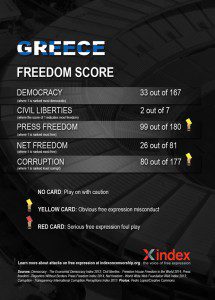
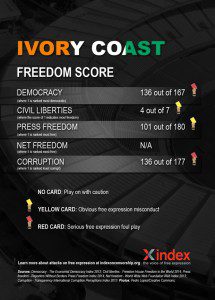
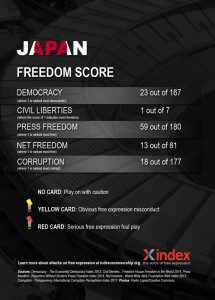
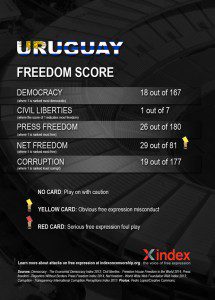
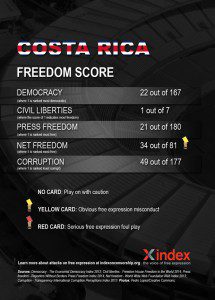
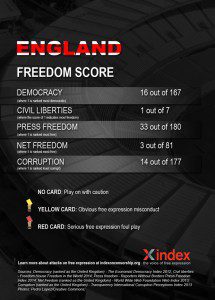
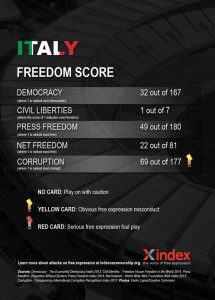
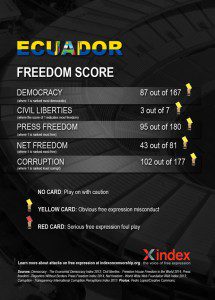
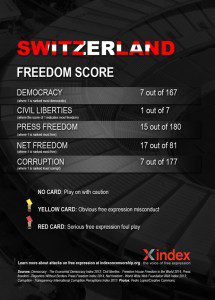
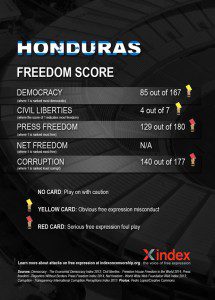
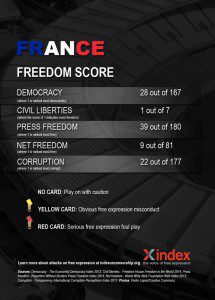
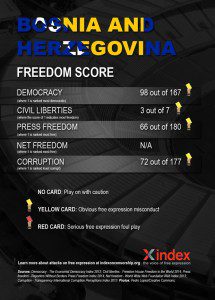
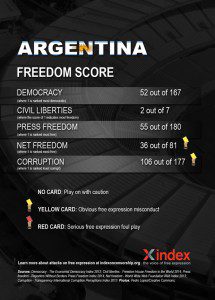
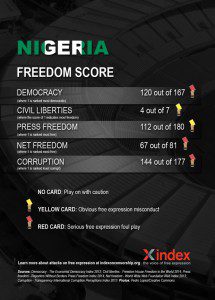
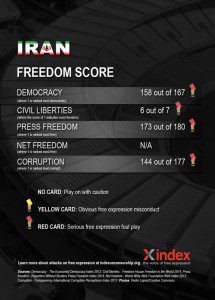
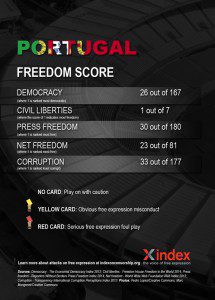

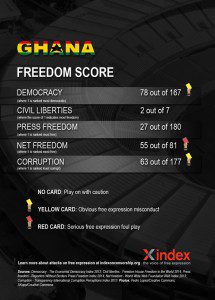
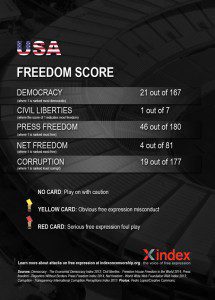
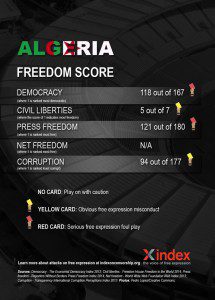
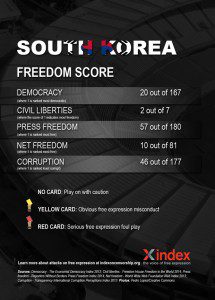
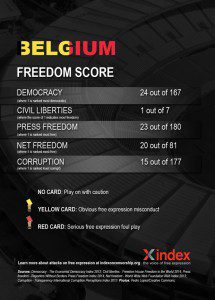
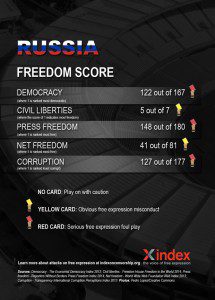
 Colombian writer Gabriel García Márquez, who died on 17 April, wrote this piece on the evolution of journalism for
Colombian writer Gabriel García Márquez, who died on 17 April, wrote this piece on the evolution of journalism for